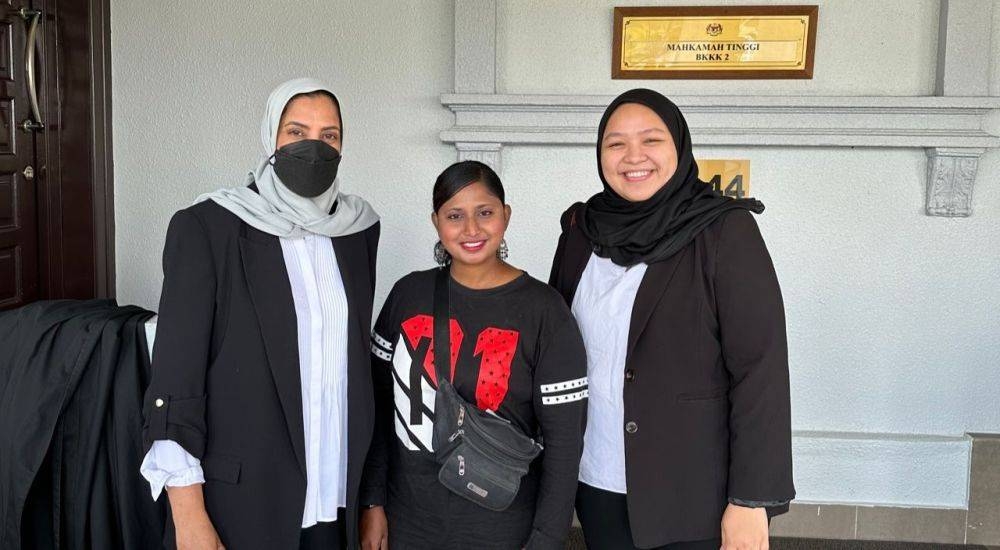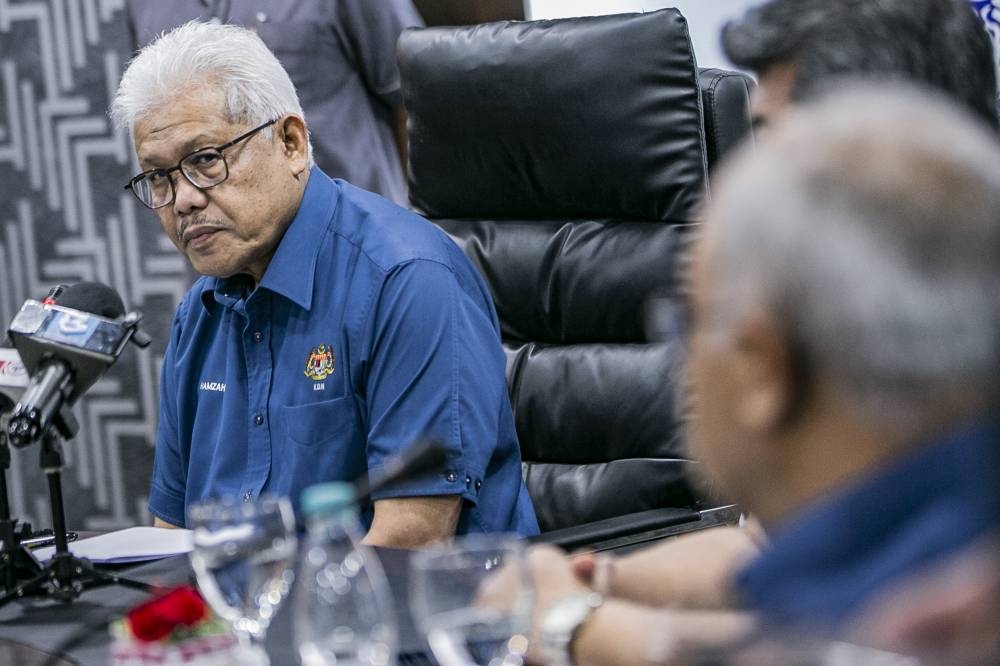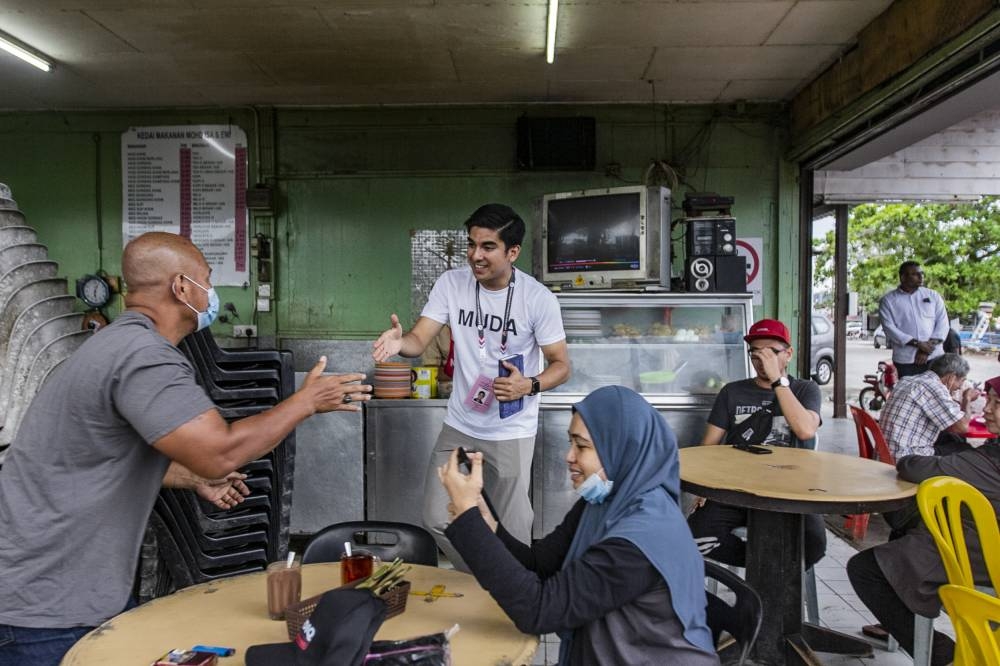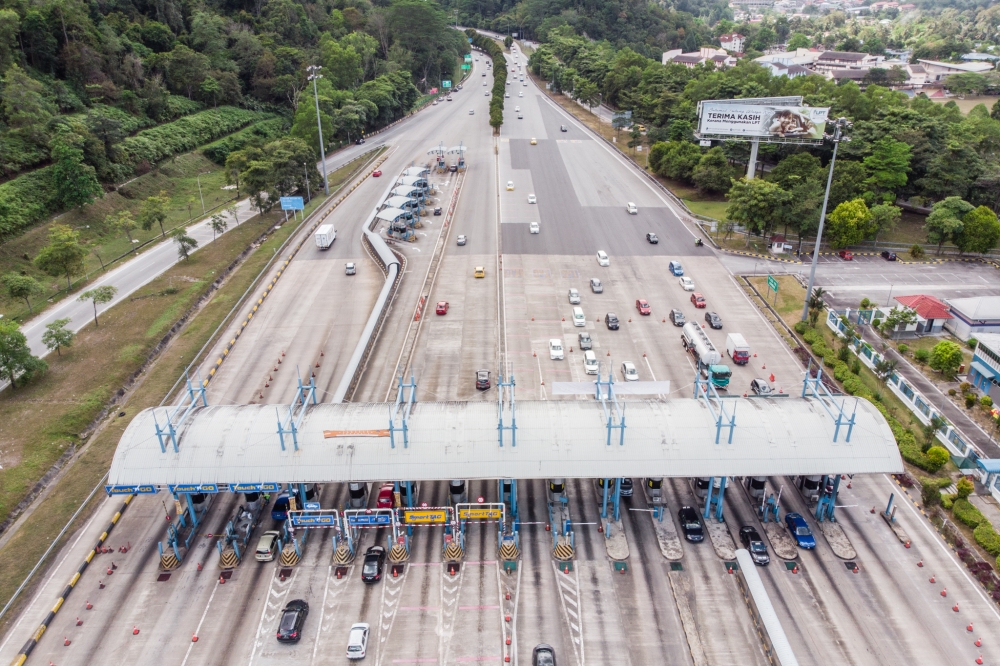KUALA LUMPUR, Nov 17 — Stateless for almost four decades, a woman who was abandoned as a baby in Kuala Lumpur has finally been granted Malaysian citizenship by the High Court.
Known only as “Hashimah”, the name stated in her birth certificate, the woman is now aged 39 and had never met her biological parents or been adopted.
The declaration of her citizenship was made by the High Court here yesterday, according to human rights group Lawyers for Liberty (LFL) which helped Hashimah with her application.
Hashimah's lawyers are Latheefa Koya and Shahid Adli Kamarudin.
When contacted, Latheefa said her client burst into tears when the lawyers explained to her what the High Court order meant.
"We hope that the Home Ministry will review all the cases of many abandoned children and grant them citizenship without forcing them to go to court," Latheefa told Malay Mail today.
In a statement today, LFL said the High Court judge Datuk Amarjeet Singh Serjit Singh based his decision on the November 19, 2021 precedent set by the Federal Court in favour of a 17-year-old boy who was similarly born stateless in Kuala Lumpur and abandoned at birth.
He was later adopted by a Malaysian couple in Penang and declared Malaysian subsequent to his court bid.
LFL said the High Court judge had highlighted that the recent court case at the Federal Court — known as the CCH case — has set a precedent on how the Home Ministry, NRD and Registrar-General of Births and Deaths should deal with future cases involving abandoned newborn children.
LFL said the High Court had also ordered the National Registration Department (NRD) to issue a citizenship certificate and a Malaysian identification card to Hashimah.
LFL said Hashimah was found by the police during a raid when she was only about three months old, where it was discovered that her biological parents had abandoned her.
According to a court affidavit by Hashimah, she was put under the care of the Department of Social Welfare (JKM) which registered her birth. The birth certificate only carries her name "Hashimah" and states her birthplace as "Kuala Lumpur", with no details of her biological parents' identity at all, not even their names.
JKM then admitted her into a children's home in Cheras in Kuala Lumpur, before transferring her at the age of four to a JKM-run orphanage in Kuantan, Pahang and transferring her at the age of seven to a JKM-run orphanage in Kuala Kangsar, Perak.
She was sent at age 10 to a home for orphans and underprivileged children in Subang Jaya where she lived until she turned 18.
"As I was never adopted, I lived in orphanages throughout my whole life," she said, adding that she had made many attempts over the years to find out about her biological parents' identity but was unsuccessful.
Hashimah said her citizenship status in her birth certificate is stated as belum ditentukan or undetermined as her biological parents' identity is unknown, which resulted in her only being able to obtain a temporary resident identity card from Malaysian authorities when she turned 18 — a card that expires every five years and which she had to keep renewing.
There were earlier unsuccessful attempts in 2012 and 2013 backed by the JKM Kuala Lumpur director and the Rumah Amal Cheshire Selangor president for Hashimah to be recognised as a Malaysian citizen by the NRD.
Hashimah herself on February 25, 2020 applied to be recognised as a Malaysian, but this was rejected by the NRD's registrar-general of citizenship in a July 29, 2020 letter.
Hashimah on October 19, 2020 then filed a lawsuit through a judicial review application in the High Court in Kuala Lumpur to challenge the July 2020 rejection and to seek to be declared a Malaysian citizen, naming the three respondents as the registrar-general of citizenship, the home minister and the Malaysian government.
In her affidavit, Hashimah said she had lived in Malaysia her entire life and pointed out the difficulties that she faced due to her stateless status, including the lack of a legal status and being unable to obtain official documents such as driving licence, passport and for marriage.
"I will also face problems when dealing with law enforcement such as the police and immigration. Even though I am not a foreigner, I have been threatened and blackmailed by enforcement authorities many times over the years due to my lack of documentation," she said, adding that the refusal to declare her as a citizen meant she would face a bleak future and be hampered in employment opportunities.
In the affidavit to support her lawsuit, Hashimah also highlighted that she was also charged a foreigner rate at government hospitals, and said her children would be stateless and suffer the same hardships if she has any children in the future.






















